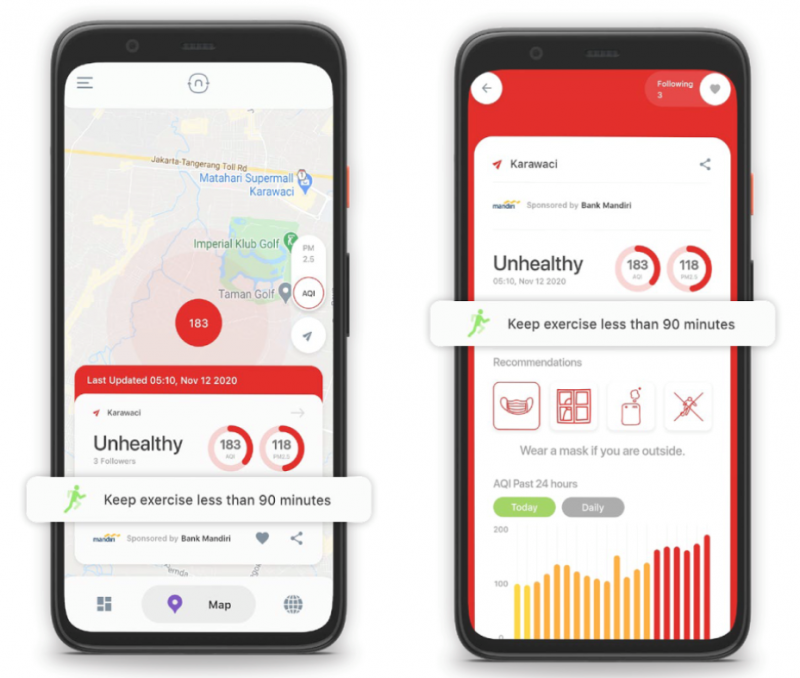IQAir Global Air Quality data has shown the level of PM 2.5 pollution in Jakarta has remained high during the large-scale social restrictions (PSBB) in 2020, ranking in the top five cities in the world for poor air quality.
“Air quality in Jakarta remains in the same range as in previous years,” based on a report quoted by Tempo on 18th March.
This figure has been obtained from an analysis by the Centre for Research on Energy and Clean Air (CREA), which can be accessed on the Greenpeace Indonesia website.
PM 2.5 are micro particles that can fly long distances and hang around for a long time in the atmosphere. The 2020 World Air Quality Report refers to PM 2.5 data for ground-based monitoring stations in 106 countries.
Throughout 2020, 84 percent of 106 countries experienced improved air quality. This improvement seems to be due to the global quarantines to reduce COVID-19 transmission.
In Singapore, for example, air pollution fell 38 percent compared to 2019. The level of pollution in Wuhan also fell by 18 percent, Seoul by 16 percent, and Delhi by 15 percent.
Even though PM 2.5 particles have remained, the concentration of NO2 in Jakarta has decreased by 33 percent. PM 2.5 and NO2 levels in the capital both continued to increase during the Transitional PSBB.
Greenpeace Indonesia climate and energy campaigner Bondan Andriyanu said the decrease in NO2 was largely due to the decline in transportation and industrial activities during PSBB. Coal-fired power plants outside Jakarta are a source of air pollutants contributing to PM 2.5 levels.
One of them is the Suralaya coal-fired power plant in Banten. According to Bondan, NOx compounds from coal activity can be oxidized to form PM 2.5 particles.
“Due to the prevailing wind trajectory, PM 2.5 pollutants from this coal plant reached the Jakarta area during the PSBB period and affected air quality in the city.”
Greenpeace Indonesia is urging the DKI Jakarta provincial government to add air quality monitoring stations that can represent Jakarta as a whole. The city also needs to provide an integrated public transportation system and coordinate with the governments of West Java and Banten in order to control cross-border air pollution.




